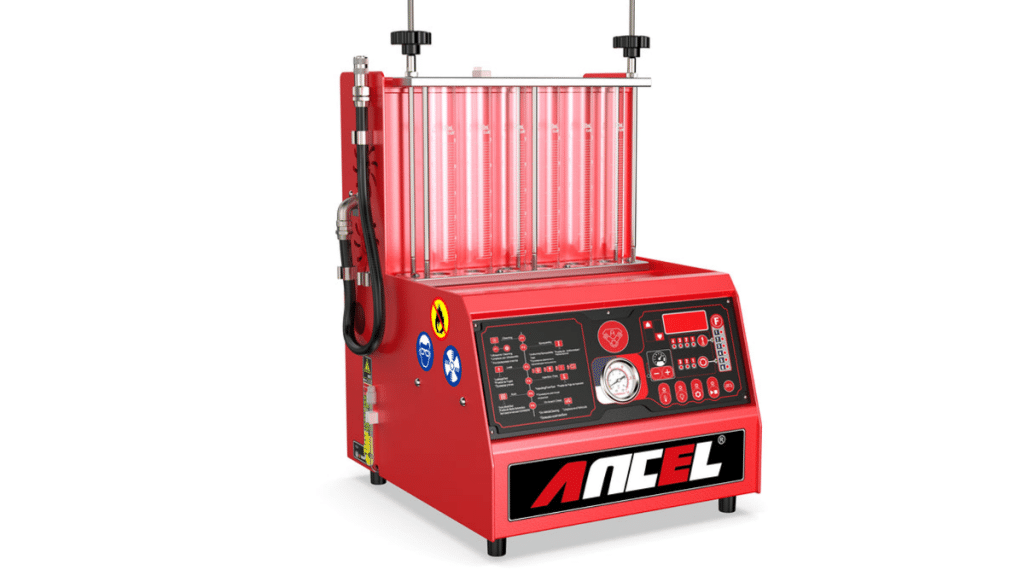Fuel injectors play a pivotal role in the performance of your vehicle’s engine, ensuring optimal fuel delivery for combustion. Over time, these injectors can become clogged or malfunction, leading to a variety of issues such as poor fuel economy, rough idling, and decreased engine performance. Fortunately, diagnosing problems with fuel injectors has become more convenient with the advent of OBD2 scanners. In this guide, we’ll walk you through the process of using an OBD2 scanner to check the health of your fuel injectors.
Common Fuel Injector Problems
Knowing common fuel injector problems can help you identify issues early and prevent costly repairs down the line. Here are some of the most frequent issues you may encounter with fuel injectors:
Clogged Injectors: Over time, fuel injectors can become clogged with dirt, debris, or carbon deposits, restricting fuel flow and affecting engine performance. Symptoms of clogged injectors include rough idling, hesitation during acceleration, and decreased fuel efficiency.
Leaking Injectors: A leaking fuel injector can cause fuel to leak into the combustion chamber or engine bay, leading to a variety of issues such as hard starting, engine misfires, and fuel odors. Leaking injectors should be replaced promptly to prevent fuel leaks and potential engine damage.
Faulty Injector Wiring: The wiring harness connected to fuel injectors can become damaged or corroded over time, resulting in poor electrical connections and injector performance issues. Inspect the injector wiring harness for signs of damage and replace any worn or corroded wires as needed.
Injector Seal Failure: The seals and O-rings that seal the fuel injectors to the intake manifold can deteriorate over time, leading to vacuum leaks and poor injector performance. If you notice fuel odor or signs of fuel leakage around the injectors, it may indicate seal failure.
Injector Coil Failure: The electromagnetic coils inside fuel injectors can fail due to heat, vibration, or age, resulting in injector malfunctions. Symptoms of injector coil failure include engine misfires, rough idling, and decreased fuel efficiency.

OBD2 Car Scanners Easily Solve Injector Problems
An OBD2 scanner is a diagnostic tool that can communicate with your vehicle’s onboard computer system to retrieve information about its health and detect any potential issues. Here is the process of using one to check your fuel injectors.
Locate the OBD2 Port: The first step is to locate the OBD2 port in your vehicle. This port is typically located under the dashboard on the driver’s side and is used to connect the OBD2 scanner to your vehicle’s computer system.
Connect the OBD2 Scanner: Once you’ve located the OBD2 port, plug the OBD2 scanner into the port. Make sure your vehicle is turned off before connecting the scanner.
Turn on the Ignition: With the OBD2 scanner connected, turn the ignition key to the “on” position without starting the engine. This will power up the vehicle’s onboard computer system and allow the scanner to communicate with it.
Navigate the Menu: Use the menu buttons on the OBD2 scanner to navigate through the menu options until you find the option to scan for codes or perform diagnostics.
Scan for Codes: Select the option to scan for trouble codes or perform a diagnostic scan. The scanner will communicate with your vehicle’s computer system and retrieve any stored trouble codes or diagnostic information.
Check for Injector Issues: Once the scan is complete, look for any trouble codes related to fuel injectors. Common injector-related codes include “P0201” to “P0208,” which indicate issues with individual fuel injectors.
Interpret the Results: Take note of any trouble codes or diagnostic information retrieved by the scanner. Refer to the scanner’s user manual or online resources to interpret the codes and determine the specific issue with your fuel injectors.
Perform Further Diagnostics: If the scanner detects an issue with your fuel injectors, further diagnostics may be required to pinpoint the exact cause of the problem. This may involve testing the injectors individually or inspecting related components such as the fuel pump or fuel pressure regulator.
Maximize Your Car’s Performance with ANCEL X7
ANCEL X7, your all-in-one solution for car diagnostics and maintenance. Trusted by professional auto repair mechanics, the ANCEL X7 goes beyond just detecting injector problems. With features like ECU coding, immo key programming, Active Test capabilities, and over 10 Hot Reset Services, it’s a comprehensive tool for keeping your vehicle in top condition.
But that’s not all—the ANCEL X7,an OBD car scanner with bluetooth, is offers the convenience of wireless Bluetooth connectivity for efficient data transmission. Say goodbye to language barriers with its support for 14 languages, ensuring accessibility for users worldwide. Plus, worry-free software upgrades are included for two years, saving you money and hassle in the long run.
Experience the power and convenience of the ANCEL X7 for yourself, available now for only $369.99. Don’t settle for anything less when it comes to your car’s diagnostics—upgrade to the ANCEL X7 today.
